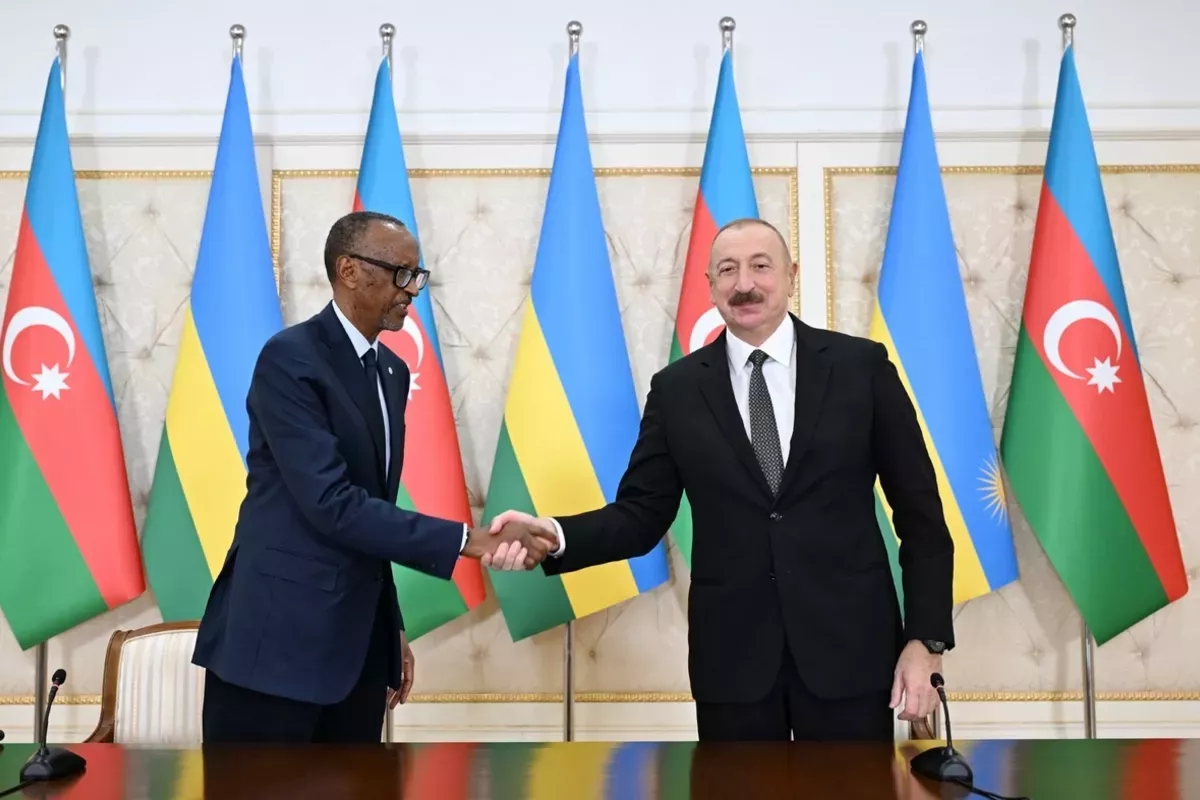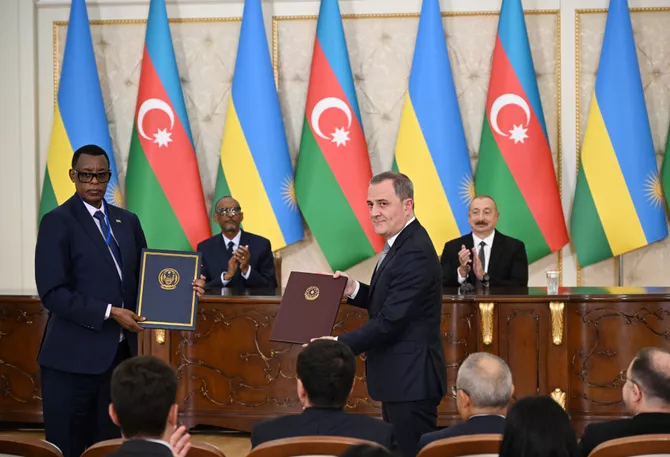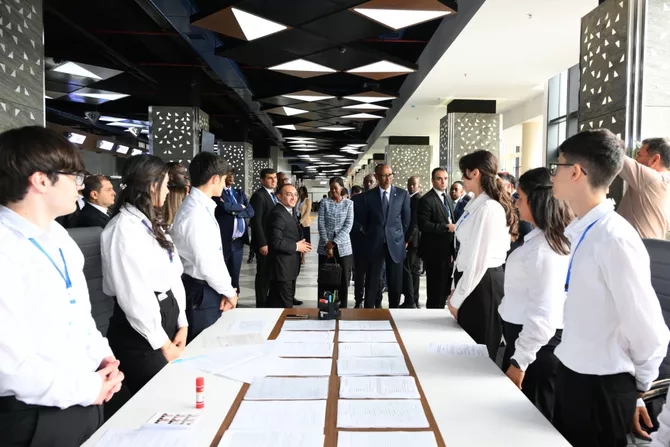
Photo: AZERTAC
The recent official visit of Rwandan President Paul Kagame to Baku has elevated bilateral relations between Azerbaijan and Rwanda to an entirely new level. During the visit, the two countries signed five intergovernmental agreements covering agriculture, education, air transportation, trade, and public services, while also announcing plans to deepen investment and technical cooperation. The meeting between Kagame and Azerbaijani President Ilham Aliyev clearly demonstrated a strong mutual interest in expanding cooperation, with each side bringing its own set of priorities to the table.
For Azerbaijan, this emerging partnership represents an opportunity to diversify its foreign economic ties beyond its traditional regions, gain access to African markets, and expand its services sector. Energy cooperation remains a key area of potential synergy. Rwanda, on the other hand, is keen to attract Azerbaijani investments and advanced technologies, while strengthening collaboration in transportation and logistics - crucial sectors for a landlocked country seeking to boost its regional connectivity.

Photo: AZERTAC
The foundation for these growing ties was laid several years ago within the framework of the Non-Aligned Movement, where both countries are active members. In January 2025, Baku and Kigali held their first round of political consultations, signing a memorandum of understanding and agreeing to ease visa requirements for holders of diplomatic and service passports.
On September 20, a high-profile signing ceremony took place in Baku with the participation of both presidents. Agreements were reached on air transportation, education, agriculture, and the implementation of ASAN services - Azerbaijan’s internationally acclaimed model for delivering efficient, transparent public services. Rwanda, which has already made impressive strides in digitalization and ranks among Africa’s leaders in e-governance according to the UN E-Government Development Index, views the ASAN system as a valuable blueprint for further modernization.
Education has also emerged as a promising area of collaboration. President Aliyev noted that currently only one Rwandan student is studying in Azerbaijan and proposed increasing that number through government scholarship programs. This initiative builds on earlier outreach efforts, such as the visit of the Heydar Aliyev Foundation delegation to Rwanda in 2024, which explored opportunities to support local educational programs.
Another area of discussion was Rwanda’s mining industry, a sector of strategic importance to Kigali. Rwanda is one of the world’s top producers of tin, tungsten, and tantalum - collectively known as the “3T minerals.” In 2022, these minerals accounted for roughly 35 percent of Rwanda’s total exports, generating over $700 million in revenue. For Azerbaijan, participation in exploration and extraction projects presents an attractive opportunity to broaden its investment portfolio while gaining access to valuable raw materials.
Agriculture is another field where interests align. Rwanda is eager to attract investment into value-added agricultural production, processing facilities, and export-oriented enterprises. Azerbaijan, with its growing expertise and resources, could serve as both an investor and a provider of advanced agricultural technologies. Beyond agriculture, Rwanda sees potential for Azerbaijani involvement in infrastructure development, tourism, and education - all critical for its national development strategy.

Photo: AZERTAC
Currently, trade between the two nations remains modest. In 2024, bilateral trade turnover amounted to only about $2 million. However, the agreements signed in Baku and the creation of joint working groups are expected to significantly increase this figure. Key growth areas include Azerbaijani exports of petrochemical products and fertilizers, and imports of Rwandan coffee, tea, and mineral resources. Azerbaijani construction companies could also play a major role in Rwanda’s infrastructure projects, contributing expertise and capacity to the country’s ambitious development plans.
Yet, challenges remain. Geographic distance and high transportation costs limit the immediate profitability of trade. With current volumes so low, logistics expenses can easily outweigh financial gains. Moreover, Rwanda’s location in a politically sensitive region, coupled with its strained relations with some neighbors, creates risks for foreign investors. This geopolitical uncertainty is one reason why Azerbaijan has so far been cautious about committing to large-scale, capital-intensive projects.
Despite these risks, Rwanda is a small but rapidly growing economy with a strong reform agenda and ambitious development goals. For Azerbaijan, Kigali represents a gateway to the broader African market - a region where Baku has been steadily increasing its diplomatic and economic footprint. By carefully balancing opportunities and risks, Azerbaijan can position itself as a reliable partner in Africa’s growth story.
One pragmatic approach could involve launching small-scale pilot projects with limited initial investment. This would allow both sides to test the potential of various initiatives while minimizing exposure to political or financial volatility. Over time, as trust deepens and results are demonstrated, larger ventures could follow, supported by a roadmap designed to mitigate risks and ensure mutual benefit.
The agreements signed on September 20 provide a solid foundation for this next phase of cooperation. They are not merely symbolic but represent concrete steps toward building a sustainable and mutually beneficial partnership. For Azerbaijan, which is determined to expand its footprint in Africa, Rwanda serves as a strategic entry point to the continent’s dynamic markets. If approached thoughtfully, this partnership could evolve into a success story, showcasing how Baku can engage with emerging economies by combining bold ambitions with careful risk management and a long-term vision for growth.
Share on social media